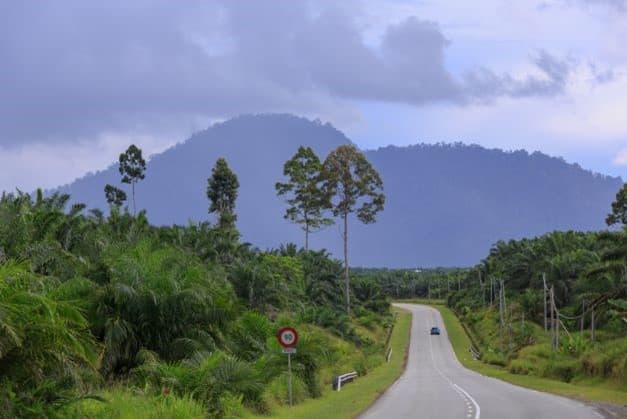
About
Kunak, a district southern Sabah, is characterised by its limestone landscapes and an abundance of forest reserves. These forests, which represent 58% of the total land district area, are managed by the Sabah Forestry Department. The forest reserves are classified either as Class I, Protection Forest Reserve or as Virgin Jungle Reserves in order to conserve the watershed and protect biodiversity, wildlife habitat, and forest carbon stocks, as well as the long-term viability of the wildlife populations of Kunak and Tawau districts. Kunak is a key agricultural district with great potential for oil palm and cacao, with a shift in preference for the former in recent times. Approximately 65% of oil palm planted in the district is operated by large companies with the remaining 35% being privately owned or smallholdings. Given the large proportion of oil palm smallholdings, the establishment of the PPI compact in Kunak will help support the livelihoods of smallholders in the area, whilst still creating strong opportunities to protect the district’s natural resources.
The Sabah state government is aiming to achieve state-wide sustainable palm oil production through the implementation of Sabah Jurisdictional Certified Sustainable Palm Oil (JCSPO). This is based on the Roundtable on Sustainable Palm Oil Jurisdictional Approach (RSPO JA) – Certified Sustainable Palm Oil, as well as through Malaysia Sustainable Palm Oil (MSPO) certification.
About NISCOPS
The National Initiative for Sustainable and Climate Smart Oil Palm Smallholders (NISCOPS) - a partnership between IDH and Solidaridad - brings together key stakeholders to sustainably manage the landscape. The program focuses on improving smallholder farmers’ livelihoods and boosting climate change resilience.
NISCOPS supports Malaysia’s commitments under the Paris Agreement, the Convention on Biological Diversity and the United Nations’ Sustainable Development Goals (SDGs), by operationalizing climate smart agriculture in Sabah, Sarawak, and Peninsular Malaysia. NISCOPS is implemented by the Malaysian Palm Oil Board (MPOB) on behalf of the Government of Malaysia as well as IDH and Solidaridad Network on behalf of the donors.
There are many opportunities to support this incredible landscape. Please click the ‘Contact the Initiative’ button on the left hand of the page to get in touch.

